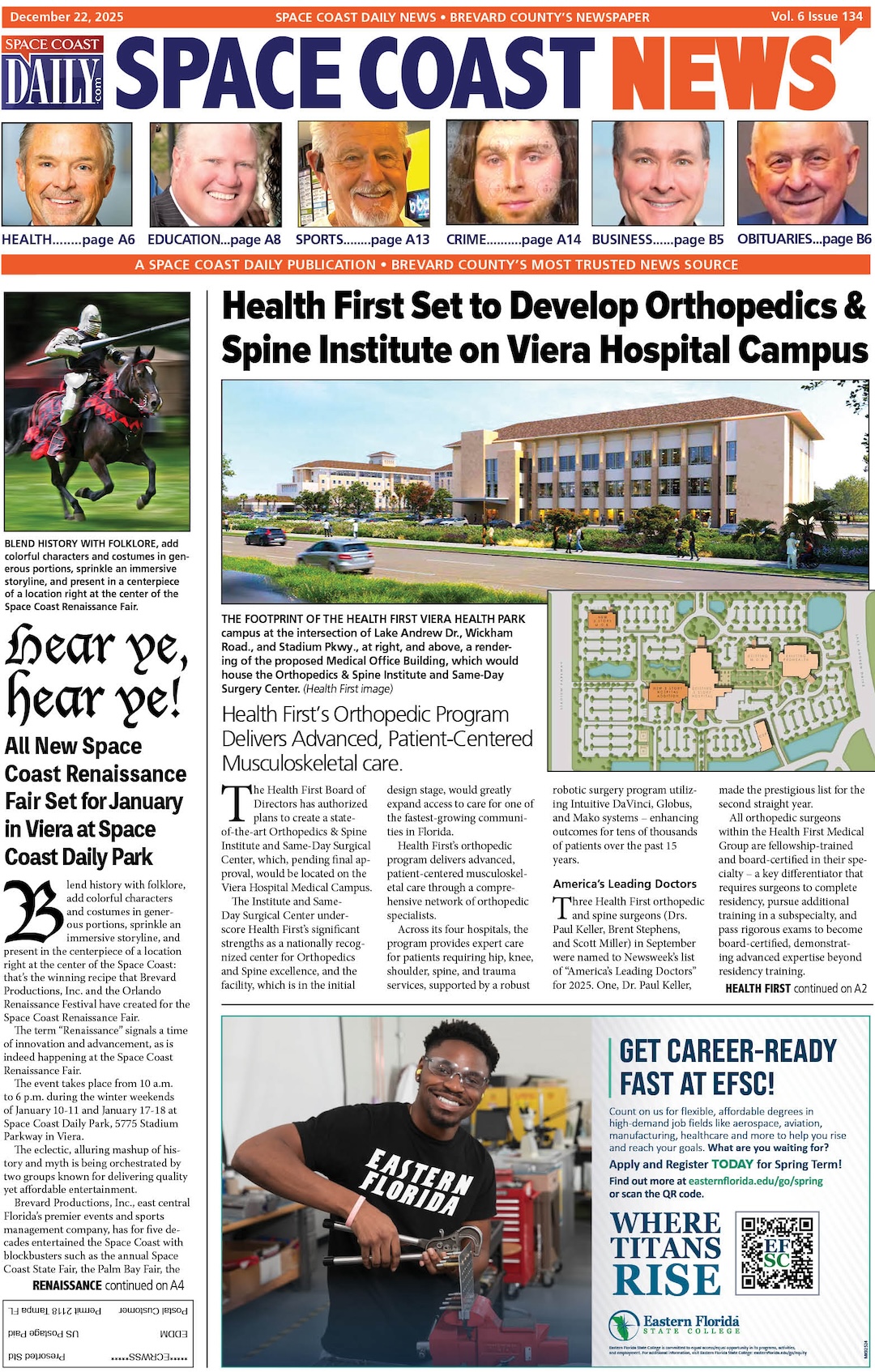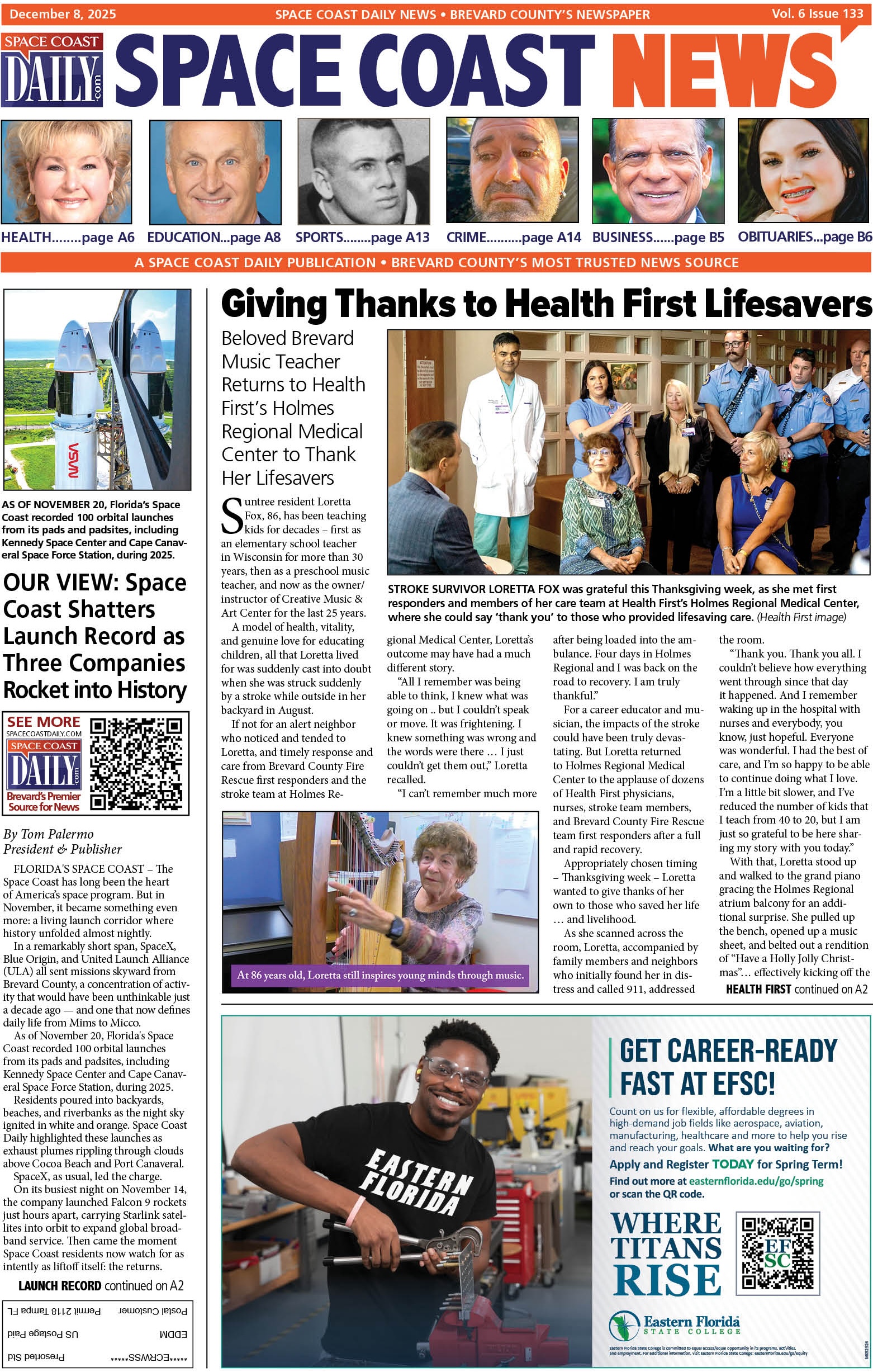Florida Tech To Use Telescope On Canary Islands
By Florida Tech // September 2, 2013
Jacobus Kapteyn Telescope remotely operated
ABOVE VIDEO: A behind the scenes look at the Isaac Newton Telescope on La Palma, the Canary Islands.
BREVARD COUNTY • MELBOURNE, FLORIDA — The Florida Institute of Technology faculty and students will increase their ability to make astronomical observations via a telescope in the Canary Islands.
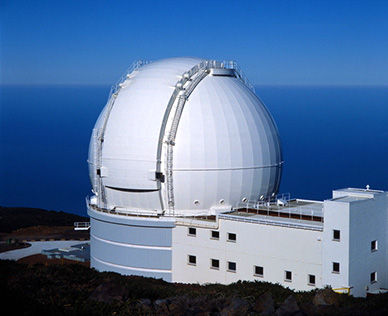
Starting in January 2015, students will be able to access the remotely operated 1.0-m Jacobus Kapteyn Telescope (JKT) on the Spanish Canary Island of La Palma, off the coast of Morocco.
The JKT, situated at an altitude of 2,360 meters at the Observatorio del Roque de los Muchachos, has sat idle since 2003.
In late 2011, however, the Science and Technology Facilities Council (STFC) of the United Kingdom announced the opportunity for interested parties to submit proposals to take over telescope operations. Daniel Batcheldor, assistant professor of physics and space sciences at Florida Tech, jumped at this chance.
DANIEL BATCHELDOR
“It seemed like a no-brainer for us,” said Batcheldor, who worked as a support astronomer at the JKT when an undergraduate intern in 1999.

“As lead institute for the Southeastern Association for Research in Astronomy (SARA), we have been remotely operating these types of telescopes for over 20 years and felt like we had a very good chance of convincing the STFC that we were the right people for the job.”
Florida Tech formed SARA in 1993, which has now grown to include 10 other institutes of higher education with similar goals for the education of astronomy and astrophysics students.
SARA currently remotely operates a 0.9-m telescope at Kitt Peak National Observatory in Arizona and a 0.6-m telescope at Cerro Tololo Inter-American Observatory in Chile.
Since learning of the opportunity, Batcheldor has led a team of SARA astronomers on negotiating for the handover of telescope operations and securing funding from the National Science Foundation (NSF) to acquire the necessary equipment convert the JKT to a remote observatory.
“As lead institute for the Southeastern Association for Research in Astronomy (SARA), we have been remotely operating these types of telescopes for over 20 years and felt like we had a very good chance of convincing the STFC that we were the right people for the job.”
Batcheldor was informed of the decision to provide the JKT to SARA in September 2012. It wasn’t until July 2013, however, that the NSF decided to fund the $474,000 project via its Major Research Instrumentation Program (MRI).
Matt Wood, faculty member at Texas A&M Commerce, the newest member of the SARA consortium, was a key player in the MRI success.
“Dr. Wood’s role was crucial and we are greatly looking forward to the types of science we will be able to do once the JKT is operational,” Batcheldor continued. “In combination with our other facilities, we will be able to easily determine trigonometric distances to near-Earth asteroids and comets, monitor objects that vary their brightness for up to 21 hours a day, and rapidly make follow-up observations of supernovae, gamma-ray bursts and other transient events.”
SIGNIFICANT CHALLENGE TO ALL FACULTY
The geographical location of the JKT in the Greenwich Mean Time zone not only increases the science capabilities of SARA’s network, but provides a much more convenient astronomical teaching facility. It can be a significant challenge to faculty and student researchers to teach or go to class during the day, and then carry out astronomical research projects throughout the night.
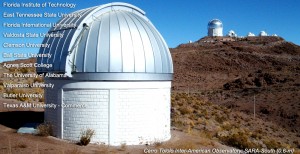
With the JKT the researchers can start observations at lunchtime in Florida and be done by midnight.
“This will give the Florida Tech and other SARA astrophysicists the opportunity to study the variability of astronomical targets over a greatly extended timeline. Combined with our other telescopes, we’ll have access of up to 87 percent of the northern sky,” said Hamid Rassoul, dean of the College of Science.
Batcheldor will revisit the JKT site this December to finalize plans to install the necessary equipment for remote observations during summer 2014. Testing the system will take place during fall 2014, with an anticipated operational date of January 2015.
ABOUT FLORIDA INSTITUTE OF TECHNOLOGY
Founded at the dawn of the Space Race in 1958, Florida Tech is the only independent, technological university in the Southeast.
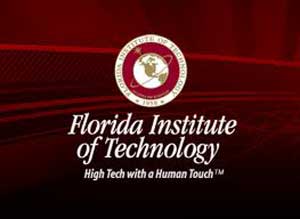
The university has been named a Barron’s Guide “Best Buy” in College Education, designated a Tier One Best National University in U.S. News & World Report, and is one of just nine schools in Florida lauded by the 2012 Fiske Guide to Colleges and recognized by Bloomberg Businessweek as the best college for return on investment in Florida.
A recent survey by PayScale.com ranks Florida Tech as the top university in Florida for salary potential. The university offers undergraduate, graduate and doctoral programs. Fields of study include science, engineering, aeronautics, business, humanities, mathematics, psychology, communication and education.
FOR MORE INFORMATION VISIT FIT.edu

